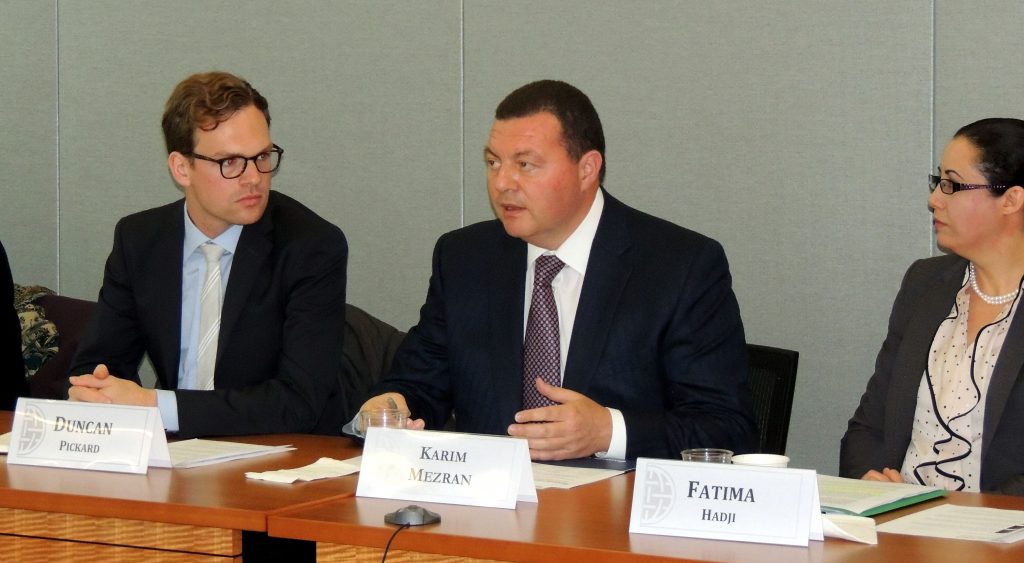Many observers and policymakers consider Tunisia as having the best chance among the Arab transition countries to successfully transition to a democracy. However, the country faces a new political crisis that threatens to delay (or possibly even derail) the adoption of a constitution. On November 22, the Atlantic Council’s Rafik Hariri Center for the Middle East hosted an on-the-record roundtable discussion to explore Tunisia’s new challenges. Hariri Center Nonresident Fellow Duncan Pickard, Fatima Hadji, program officer for the Maghreb at the National Endowment of Democracy, and Bassem Bouguerra, founder of a Tunisian non-governmental organization focused on security sector reform joined via videoconference from Tunis. Hariri Center Senior Fellow Karim Mezran moderated the discussion.
The panelists gave an overview of the events leading to the current political crisis: in the wake of two disruptive political assassinations, growing internal opposition, and external pressure from international financial institutions, the ruling coalition led by the Islamist Ennahda party agreed to step down, opening the way to a national dialogue. Ennahda and the opposition agreed to a four-part roadmap governing the transition of power, but the process stalled quickly stalled over the selection of an interim caretaker prime minister. The speakers attributed the impasse to increasing polarization and mistrust between Ennahda and the opposition, which is compounded by inexperienced mediators (e.g. the powerful trade union, UGTT). Dr. Mezran and other participants posited that the current political polarization may not be an inherently negative sign, insofar as the parties recognize as legitimate the system in which they are participating and they respect the rules of the game.
Even though the political process remains intact in Tunisia, patience among the public is wearing thin as the impasse continues and the country’s economic situation deteriorates. Participants debated possible avenues for the country to overcome the obstacles, including the involvement of an international mediator to help build trust between the political parties and to move Tunisia’s transition forward.
